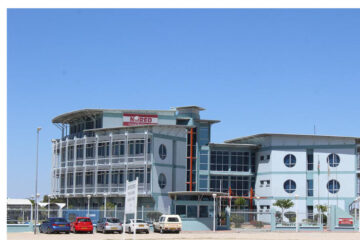Martin Endjala
By 2033, there will likely be more millionaires in Namibia than in any other African country.
This is according to a recently released report on Africa’s Wealth Landscape for 2024.
The reports suggest that over the next decade, countries such as Namibia, Mauritius, Morocco, Zambia, Kenya, Uganda, and Rwanda are all expected to experience a growth in millionaires above 80%.
The report also projected Namibia’s growth in high-net-worth individuals (HNWIs) to exceed 85% by 2033.
“The country’s inclination towards offering residence by investment, coupled with its resource-rich economy and strategic location, is expected to attract global investors,” the report reads.
A different picture emerges when comparing the millionaire growth rates from 2013 to 2023.
While South Africa and Egypt saw declines of 20% and 22%, respectively, countries like Mauritius (87%), Rwanda (84%), Morocco (35%), and Namibia (32%) all experienced significant growth in their millionaire populations.
According to the report, investment migration is emerging as a potential further catalyst for Africa’s economic growth.
By offering residence and citizenship through investment opportunities, African countries can attract vital foreign capital, stimulate job creation, and foster knowledge transfer.
This not only benefits the host nations but also provides African HNWIs with enhanced global mobility and risk diversification options.
However, the report suggests a growing trend of wealthy Africans seeking alternative residence or citizenship abroad.
Namibia, rich in minerals such as uranium, diamonds, copper, and gold reserves, is garnering global attention, according to the report.
According to the report, Namibia’s stable political and economic status makes it a prime tourist destination, with abundant wildlife and some of the highest dunes in the world.
It further found that Namibia is considered among the safest nations in Africa because of its excellent infrastructure.
The report states that recent discoveries of offshore oil and gas further underscore the continent’s resource potential.
The report warns that harnessing these resources sustainably and translating them into broad-based prosperity will be a defining challenge for African leaders.
This underscores the need for African governments to create an enabling environment that encourages local investment and mitigates talent and capital flight.
In addition, it states that strengthening institutions, enhancing transparency, and implementing investor-friendly policies will be key to retaining and attracting wealth.
Despite the challenges, the report has indicated that Africa’s potential for wealth creation remains immense.
This is due to the continent’s youthful and rapidly growing population, which presents a significant demographic dividend.
In order to unlock human capital and promote sustainable growth, strategic investments in education, infrastructure, and technology are considered essential.
Speaking on Monday at the government centre in Windhoek, the Namibia Investment Promotion and Development Board (NIPDB) chief executive officer, Nangula Uaandja, said its duty is to promote Namibia as the preferred investment destination for foreign investors.
“That’s why Namibia needs to make sure that, as we say, Namibia is a friend to all and an enemy to none. We need to make sure that those relationships we used it to the benefit of Namibia in terms of trading and investment,” she said.
In 2023, the acquisition of Namibian Breweries by Heineken peaked the immediate interest of Namibian equity investors.
The main driver among investors is the developments around green hydrogen and the major discoveries made in the country’s Orange Basin in 2022 that have upped the oil and gas sector.
The discoveries have since attracted a great deal of attention, not only from multinational energy corporations but also from foreign interests.




